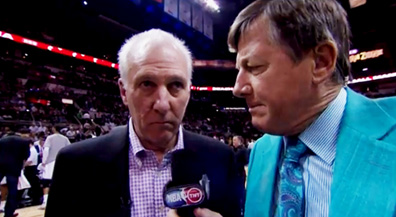|
|
Monday Morning Quarterback Part IBy BOP StaffApril 22, 2014
Kim Hollis: What in the blue hell has happened to Johnny Depp? Edwin Davies: For the first 20 years of his career, Depp was a critics' darling and a heartthrob, making him someone who most people knew was famous, but who only occasionally starred in hit movies. Then he brought his eccentric sensibilities to the character of Jack Sparrow, against the wishes of the people paying him, and almost singlehandedly turned Pirates of the Caribbean into an improbable hit and even more improbable franchise. To illustrate just how much his career changed as a result of that, consider this: the combined grosses of the seven films that Depp appeared in between 2003 and 2005 made more at the domestic box office than the more than 20 films he appeared in between 1984 and 2003. For a few years, he continued to keep doing what he had for his entire career; he picked the roles that he wanted to play, whether it was playing J.M. Barrie, John Wilmot or a version of Heath Ledger as a favor to Terry Gilliam, but now he would appear in big budget blockbusters to pay the bills. Sometimes he'd split the difference with something like Public Enemies, which had the budget of a blockbuster but the sensibilities of a much smaller movie. But he always seemed to give his all, and even the performances he gave in his most commercial films had a spark to them. Sometime around the fourth Pirates of the Caribbean movie, he seemed to stop trying. He's not a hungry young actor any more, but an immensely wealthy superstar, and he doesn't seem to want to push himself. That's fine as far as his bank balance goes, but I think that's why a lot of his biggest boosters - i.e. film critics - have really gone after him for some of his choices. There's a kind of disappointment there which extends to many fans as well, which is why people aren't willing to take a chance on his recent endeavors.
|

|
|
|

|
Friday, April 26, 2024
© 2024 Box Office Prophets, a division of One Of Us, Inc.


